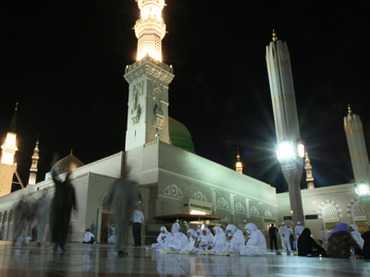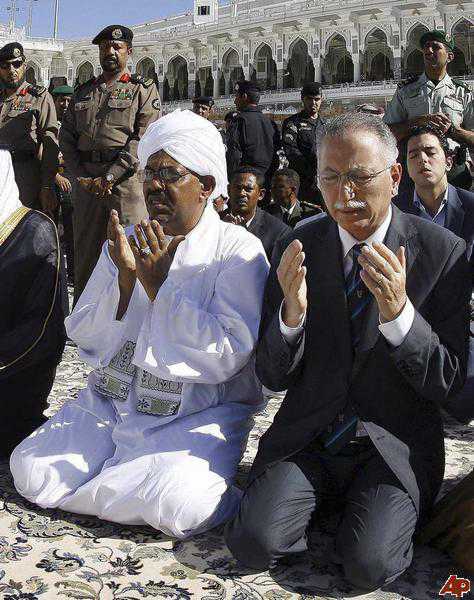ARAB SPRING AFTERMATH: Ankara cosying up to Cairo with billions in loans and gifts
 W Scott ThompsonEVER since Angelina Jolie sent her son Alexander off to conquer the known world in the fourth century BCE, there has been a natural geostrategic competition between Turks and Egyptians. At least that’s when folks could have begun seeing it as such. Of course Alex was a Macedonian Hellene, not a Turk, but the Ottomans governed, or misgoverned, Macedonia for several centuries.
W Scott ThompsonEVER since Angelina Jolie sent her son Alexander off to conquer the known world in the fourth century BCE, there has been a natural geostrategic competition between Turks and Egyptians. At least that’s when folks could have begun seeing it as such. Of course Alex was a Macedonian Hellene, not a Turk, but the Ottomans governed, or misgoverned, Macedonia for several centuries.
Only three major countries can claim to span two continents — Russia preeminently. But a second, Turkey, is separated by the Bosphorus into a European and Asian power. Ever looked at Mongolian names? On the other side of Asia they look like Turkish names, because they are. For four centuries the Ottomans who conquered Byzantium in 1453 — just as Islamic forces drove the Hindu Javanese kingdom to Bali — spread their power on a path mainly eastward, and are trying to pick up where they left off before the Ottoman Empire began to crumble. For that matter, they got pretty far west, and only with the Battle of Lepanto in 1571 and some skirmishes near Vienna, drawing in all the European powers in the 16th century, were they contained. Sorry for the European point of view; Western civilisation wouldn’t otherwise have prospered.
Egypt is mostly in Africa but sees itself and truly is more of the Middle East. During Nasser’s time a variety of fictional paper “unions” were proclaimed, Egypt with Syria and others lying east by northeast. But nowhere on earth does strategic location give a country greater leverage than Egypt with its Suez Canal. In the 20th century, it’s been Egypt that has done more of the talking than Turkey.
For remember that the Ottoman Empire imploded after World War I, and Kemal Ataturk drew from the ashes a new, secular and modernising state, what we now know as Turkey. He ordered fez and burqa out, but now along with other relics they are coming back — religiously and politically (though women can’t run for office or even work in a government office wearing a headscarf). Even Ataturk, whom every coup-making colonel on a white horse has dreamed of imitating, couldn’t eliminate history.
But the fact is that Egypt was a sullen satrap of the Ottomans for several centuries. It even had an imported Albanian king, the last of whom, a klepto who famously stole a priceless watch from Winston Churchill, pored over his porn rather than helping his people. He lost out in 1952.
So one would expect Egyptians to want to play getting-even or at least catch-up. But that’s the opposite of what’s happening. Because the Arab Spring changed everything. Firstly of course Egypt lost its hammer. Did you notice that at the funeral of Mubarak’s predecessor Anwar Sadat, the only heads of state attending were the three living American presidents or ex-presidents? Wonder why? Mubarak was a puppet and when the masters want to move the puppet, they do it on their own schedule. By definition a puppet is replaceable.
Come the Arab Spring. Egypt is not fully Arab but it’s still the centre of the region’s gravity. And no longer need Egypt’s nationalists be embarrassed that its regime sheltered Israelis and assaulted Palestinians. Israel is losing all its almost-puppet neighbours. Will the Jordanian Hashemites, whom London and Paris placed on the throne after World War I, be the next to go?
Meantime the Syrian civil war started, copying Egypt as much as the rebels could manage. Syria’s Bashar Assad was a convenient ally to Turkey. Now Ankara gives a back door to the rebels — of necessity for reasons of Kurdish politics alone — and manages the pace of the civil war. Bashar will go, when Ankara decides it’s time.
It has paid a price. It needs new friends. So Prime Minister Recep Tayyip Erdogan, who crushed the Ataturk-worshipping generals, cosies up to Cairo. And, within limits, blesses its Arab Spring advocates. Now Turkey isn’t even a little bit Arab, but when it found it was unwelcome in Europe after decades of trying to please Bonn and Paris, where else could it find new friends, but east and southeastwards?
So now Turkey, which is richer by five times than Egypt — looking at per capita income of relatively equivalent populations — is offering loans, gifts, and the usual bribes to help Egypt get out of its Arab Spring aftermath, adding up to low billions in dollars. Turkey has humiliated Israel for its show of force in Mediterranean waters two years ago: eight mostly Turks lost their lives but Israel lost an ally. Egypt has reassured Washington and Israel that it will honour its agreements with Israel, but no one is fooled. Step-by-step it is distancing itself from the Jewish state. Washington can’t use all its diplomatic capital to protect Israel from its own miscalculations. It won’t, can’t, and isn’t.
W Scott Thompson is emeritus professor at the Fletcher School of Law and Diplomacy, Tufts University, United States
via Turkey comes to the aid of Egypt – Columnist – New Straits Times.




